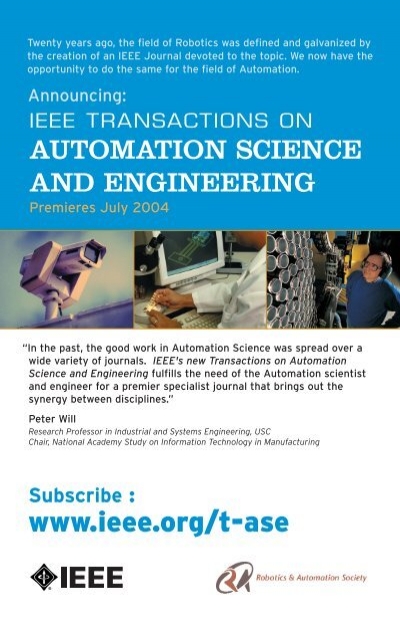非线性多智能体系统的自适应模糊规定时间群控制
IF 6.4
2区 计算机科学
Q1 AUTOMATION & CONTROL SYSTEMS
IEEE Transactions on Automation Science and Engineering
Pub Date : 2025-01-20
DOI:10.1109/TASE.2025.3531846
引用次数: 0
摘要
讨论了非线性多智能体系统(NMASs)在有向拓扑上实现规定时间形成(PTF)的问题。通过引入NMASs的时变函数,提出了一种新的PTF协议框架。模糊逻辑系统(FLSs)用于逼近系统中潜在未知的非线性函数。需要注意的是,将自适应控制技术纳入所提出的协议框架可以消除模糊逼近误差带来的不利影响。因此,各agent的形成误差在规定时间内收敛为零。此外,通过引入一种新的自适应律,将协议框架进一步扩展到具有扰动的NMASs。通过数值算例说明了该方案的优点和有效性。给从业人员的说明——本文深入研究了NMASs领域内关于规定时间编队控制的关键问题。本文的动机是观察到目前使用模糊控制器的实践可能无法在用户定义的时间框架内实现系统形成误差收敛到零。为了解决这个问题,人们提倡引入一种规定时间的控制方法,以加速地层收敛。此外,提出了自适应模糊控制器,以解决系统建模不准确带来的挑战,从而确保严格的控制精度。提出的框架在不同的工业环境中具有相当大的应用潜力,包括移动机器人、无人驾驶飞行器和车辆交通管理系统领域。后续的研究工作可以更深入地改进这种方法,并研究在交换多代理系统中实现规定时间控制的方法。本文章由计算机程序翻译,如有差异,请以英文原文为准。
Adaptive Fuzzy Prescribed-Time Formation Control for Nonlinear Multi-Agent Systems
This paper discusses the issue of achieving the prescribed-time formation (PTF) over a directed topology for nonlinear multi-Agent systems (NMASs). A novel PTF protocol framework is proposed through the incorporation of a time-varying function for NMASs. Fuzzy Logic Systems (FLSs) are used to approximate potentially unknown nonlinear functions within the system. It is crucial to note that incorporating the adaptive control technique into the proposed protocol framework eliminates the adverse impact stemming from fuzzy approximation errors. Consequently, the formation errors of each agent converge to zero within the prescribed time. Additionally, through the introduction of a novel adaptive law, the protocol framework is further expanded to the NMASs with disturbances. Both the benefits and efficacy of the presented protocol are shown through numerical examples. Note to Practitioners—This paper delves into the pivotal issue within the realm of NMASs concerning prescribed-time formation control. This paper is motivated by the observation that current practices utilizing fuzzy controllers may not achieve the convergence of system formation errors to zero within the user-defined time frame. To solve this, the introduction of a prescribed-time control methodology is advocated, poised to expedite the formation convergence. Furthermore, the incorporation of an adaptive fuzzy controller is proposed to address challenges stemming from inaccurate system modeling, thereby ensuring the stringent control accuracy. The proposed framework harbors considerable potential for application across diverse industrial contexts, encompassing the realms of mobile robotics, unmanned aerial vehicles, and vehicular traffic management systems. Subsequent research endeavors can delve deeper into refining this approach and investigating methodologies for attaining prescribed time control within switched multi-agent systems.
求助全文
通过发布文献求助,成功后即可免费获取论文全文。
去求助
来源期刊

IEEE Transactions on Automation Science and Engineering
工程技术-自动化与控制系统
CiteScore
12.50
自引率
14.30%
发文量
404
审稿时长
3.0 months
期刊介绍:
The IEEE Transactions on Automation Science and Engineering (T-ASE) publishes fundamental papers on Automation, emphasizing scientific results that advance efficiency, quality, productivity, and reliability. T-ASE encourages interdisciplinary approaches from computer science, control systems, electrical engineering, mathematics, mechanical engineering, operations research, and other fields. T-ASE welcomes results relevant to industries such as agriculture, biotechnology, healthcare, home automation, maintenance, manufacturing, pharmaceuticals, retail, security, service, supply chains, and transportation. T-ASE addresses a research community willing to integrate knowledge across disciplines and industries. For this purpose, each paper includes a Note to Practitioners that summarizes how its results can be applied or how they might be extended to apply in practice.
 求助内容:
求助内容: 应助结果提醒方式:
应助结果提醒方式:


